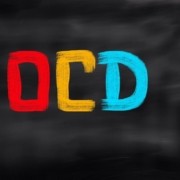Best OCD Medication and Alternative Treatment Options
Obsessive-compulsive disorder (OCD) is a mental health disorder that features a repetitive pattern between obsessive fears and the compulsive actions taken to alleviate the fears, often keeping the individual trapped in the vicious cycle. OCD can be highly disruptive to daily functioning and a challenge to interpersonal relationships, as well as a source of embarrassment and shame. Often, the individual becomes socially withdrawn as the OCD symptoms become so disruptive, which can cause significant impairment in daily functioning.
When seeking help for this mental health disorder, mental health practitioners might prescribe a combination of the best OCD medication and cognitive behavioral therapy in a two-pronged treatment approach. For many who struggle with OCD, these interventions may be helpful in reducing the severity of the symptoms, leading to a better quality of life. However, others are unresponsive to the drugs, or cannot tolerate the side effects, so for these individuals alternative treatment options should be explored.
About OCD
OCD is a disorder that is centered on pairings of specific obsessions and the repetitive compulsive behaviors that follow. These thoughts and actions can begin to take up more and more time in the day, creating a situation where the disorder has negative consequences in daily functioning.
Obsessive thoughts are thought distortions that are persistent and cause intense discomfort or distress. Obsessions usually revolve around themes, such as:
- Fears, such as fear of germs or contamination, fear of the house burning down, etc.
- Disturbing thoughts regarding sexual, religious, or aggression that repeat over and over in the mind
- A need for order and symmetry that leads to intense stress if items are not arranged just so
- Thoughts or imagining of self-harm or harming others
Compulsions are the behaviors that the person suffering from the obsessive thoughts feels driven to do to reduce stress and anxiety. These compulsive behaviors are an excessive response to the stressor and may take on a ritualistic pattern. Examples of repetitive compulsive behaviors include:
- Hand washing
- Checking to see that the lights are off, stove is off, doors locked, etc.
- Counting in patterns
- Mentally repeating a phrase, word, or prayer
- Arranging items to be spaced exact distances apart or in certain patterns, or turned in a particular direction
Best OCD Medications and Treatment
When someone suffers from OCD they will visit their mental health practitioner for some relief from the symptoms, hoping to improve their ability to function. The psychiatrist will prescribe medications and psychotherapy to treat the OCD. The best OCD medications to date include:
- Anafranil
- Prozac
- Paxil
- Zoloft
- Fluvoxamine
Each of these drugs carries adverse effects, including weight gain, sexual dysfunction, blurred vision, fatigue, insomnia, nausea, and dry mouth, for example. The medications usually take 4-6 weeks before they provide relief, but are only effective in about half the OCD patients.
Psychotherapy will center around changing thought/behavior patterns through the use of cognitive behavioral therapy (CBT). CBT can help patients recognize thought distortions and replace the disordered thought patterns with more productive, realistic ones, which can lead to a relief of the compulsions to some degree. Exposure therapy has also been found to benefit patients with OCD, during which the patient is incrementally exposed to the stressor until its anxiety-provoking effects are diminished.
TMS Therapy: Alternative Treatment Option for Treating OCD
For the patients who did not enjoy symptom relief through the antidepressant drug therapy, TMS therapy offers a safe and effective, and drug-free, alternative for treating OCD. TMS is a brain stimulation therapy using magnetic technology. The patient is wide awake during the therapy sessions and can drive themselves back to work immediately following the TMS therapy.
Using a coil placed over the scalp to deliver the repetitive magnetic pulses to the prefrontal cortex, the magnetic fields are converted to electrical currents, referred to as electromagnetic conduction, and will penetrate about 2 cm into the targeted brain tissue. These currents then modulate brain activity and can help diminish the OCD symptoms.
TMS therapy is noninvasive, therefore requires no surgical procedures, no general anesthesia, and no recovery time. TMS is well tolerated by patients, with only minor adverse effects, such as scalp tenderness and mild to moderate headaches, reported. TMS therapy was FDA cleared in 2008 for treating major depressive disorder and in 2018 for treating OCD.
Anew Era TMS & Psychiatry Offers TMS Therapy for OCD Treatment
Anew Era TMS & Psychiatry is a leading provider of TMS therapy in Orange County, California and Austin, Texas. Frustrated OCD patients who were not responsive to even the best OCD medications often find symptom relief with TMS therapy. Anew Era TMS & Psychiatry can combine TMS Therapy with CBT for significant improvement in OCD symptoms. For more information and to learn if you are a candidate for TMS, please contact Anew Era TMS & Psychiatry today at (888) 503-1549.








